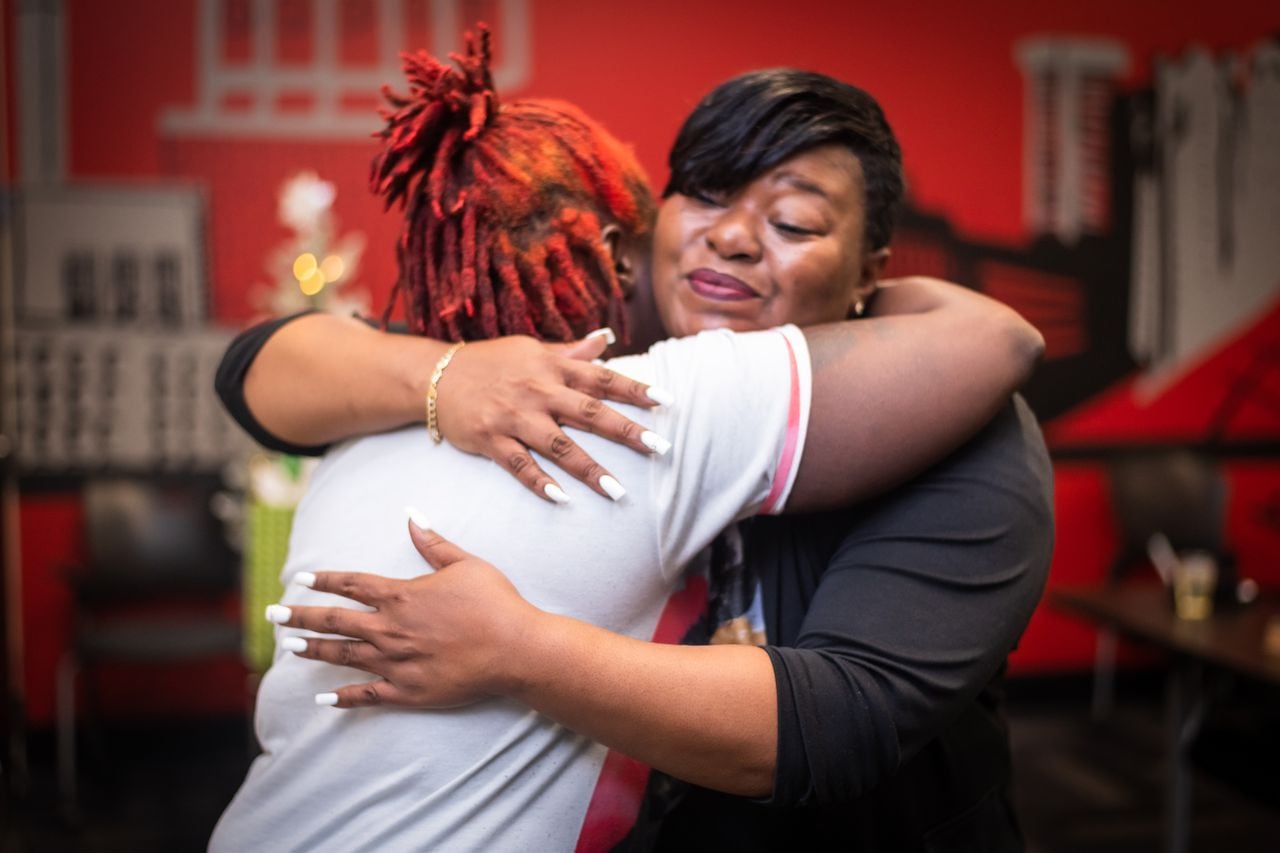Gun violence affects communities: Experts, advocates on how to help
As Birmingham wrestles with an ongoing homicide crisis, experts and advocates say it is important for communities to work together to cope, heal and identify solutions.
Catrina Carey said remembering her son is easy, but the grief will never go away. Since losing her son, Derrick Marks, 25, in 2020. Carey has become a counselor and mentor to many community members who have lost a loved one.
“It helped me in my healing process to know that I’m able to relate and help someone through their healing process,” Carey said. “It just means a lot to be able to just sit and talk them through it, help them, cry with them, hug them. Sometimes they just want to talk about it, they just want to be able to get it out. Sometimes they just want to talk and don’t want to hear anybody talk back, they just want you to listen.”
She advises others to help those who are struggling with grief by getting to know the resources available within their own communities, such as grief counseling and mental health programs.
“We have to stay unified to be able to come up with a solution to stop the violence,” she said. “That means being in unity with the police, the officials, organizations working together on one accord because we’re all working toward the same greater good.”
To cope with grief, Daniel Marullo, Ph.D., pediatric psychologist and neuropsychologist with Children’s of Alabama, said people who live in areas with higher rates of violence are at a higher risk of distress.
In all of Jefferson County, there have been 184 homicides so far in 2023, including 132 in Birmingham.
Those who have lost a loved one may experience “secondary victimization,” where the stress and trauma may cause depression, anxiety and post traumatic stress disorder.
“It’s not unusual, whether it’s a traumatic event or not, for people to hold on to some grief. It’s just a natural part of being a human being. The question becomes whether that person is experiencing just a normal grief reaction or is it slipping into something more like depressive disorder or post traumatic stress disorder, which really begins to interfere with life,” Marullo said.
“But one thing I think is helpful is making it possible for people to talk about and acknowledge that something has happened and allowing people the time and the space to grieve in a healthy way. And part of that is just making it okay to talk about things,” he said.
Cassandra Crifasi, Ph.D., co-director of the Johns Hopkins Center for Gun Violence Solutions, said violence and crime are often concentrated in communities where high-quality education, jobs and housing are hard to find.
According to the United States Census Bureau, 26% of Birmingham residents lived in poverty compared to the nation’s 11.5% poverty rate, in 2022. Per capita income is approximately $29,289 compared to the $41,261 national average.
Crifasi notes that gun violence drains communities of resources and often makes people impacted feel unsafe and uncertain. She said when a shooting happens, individuals or businesses may leave or choose not to invest in the community, causing a resource drain and leaving people more vulnerable to engaging in violence.
“In communities where we see high rates of gun violence, there are immense economic costs. They have huge societal impacts in terms of loss in that community beyond just that individual and that family,” she said, “[Communities] suffer from the perpetuating cycle where there are high rates of violence,” she said.
“Trauma, it’s like throwing a pebble into a pond. There are ripple effects. It affects the individual and affects the immediate family. And then it goes out from there because we’re part of a community,” Marullo said. “The uncertainty of something traumatic like a shooting, really just shakes a community’s sense of safety and security, because of that shock and disbelief.”
In addition to policies that would address gun violence specifically, Crifasi said communities should also consider public health solutions such as violence intervention programs and street outreach that bring in the whole community.
Community members and government leaders have launched many initiatives and support systems to curb the violence, including the Offender Alumni Association’s Hospital Linked Violence Intervention Program at the University of Birmingham Hospital, Jefferson County’s RESTORE program to help at risk youth get back on track and the Hispanic Interest Coalition of Alabama’s initiative to remove language barriers for Hispanic and Latino victims of crime.
“It gives communities a voice. They have a seat at the table. They are a part of the creation of solutions,” Crifasi said.
The Amelia Center at Children’s of Alabama offers resources for those who are grieving; counselors for adults, teens, and children can be reached at 205-638-7481. Additional resources for families, including talking about death, methods of coping with loss, child trauma, and bereavement, can be found on the Children’s of Alabama website.
